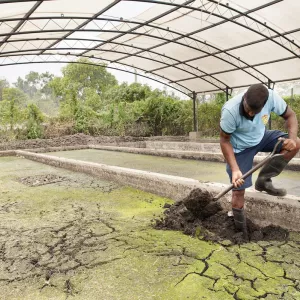Organic fertiliser: Circular economy for urban waste
The import ban on chemical fertilisers and other agrochemicals is slowly starting to draw investments into alternative fertiliser systems. There is an opportunity for Sri Lanka to use this policy window to create circular economies between agriculture and urban organic waste systems. These circular systems can help develop future organic alternatives in Sri Lanka. A circular approach can mitigate two

Organic fertiliser: Circular economy for urban waste
The import ban on chemical fertilisers and other agrochemicals is slowly starting to draw investments into alternative fertiliser systems.
There is an opportunity for Sri Lanka to use this policy window to create circular economies between agriculture and urban organic waste systems. These circular systems can help develop future organic alternatives in Sri Lanka. A circular approach can mitigate two major sustainable development challenges for Sri Lanka: Food insecurity and urban waste management.
The ban is not a recent shift. It stems from a longer historical agenda of a “toxin free nation” based on ‘wholesome agriculture. In 2016, Sri Lanka’s then President published an ambitious three-year agricultural plan to build a toxin-free nation. The plan was not translated into a national policy, but the recent ban seeks to advance this agenda.
The circular economy opportunities between agriculture and urban waste also have a history. There have been decades of focused…
Photo credit: Hamish John Appleby/IWMI

